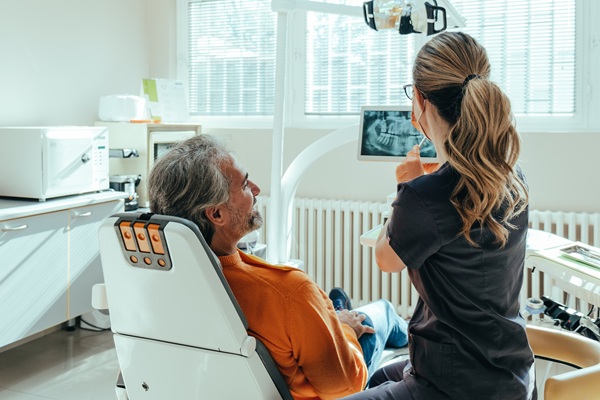Why You Should Rest after a Tooth Extraction
Undergoing a can be stressful. Dentists do everything they can to save natural teeth, but sometimes, removing the tooth is the way to restore oral health and prevent complications. After the procedure, the dentist will provide instructions regarding aftercare to ensure quick and proper healing.
The importance of rest after tooth extraction
After tooth extraction, patients do not exactly need to be bedridden, but what they want to avoid is overexerting the extraction area. It is important to take it easy, especially in the first 24 hours. This means avoiding any unnecessary bending and stooping and staying off exercises.
Whenever possible, the head should be held in an upright position, including when sleeping as this helps to aid quick recovery. The more intensive the procedure is, the longer the resting period should be. Resting gives the body a chance to heal properly, so patients must take advantage of that.
The dentist will send the patient home after tooth extraction with gauze to cover the surgery site. They will need to bite on the gauze and hold it in place until a clot form in the area for healing. The gauze will need to replaced every three to four hours until the bleeding stops.
Any strenuous activity or exercise might break the clot and open the wound again. Although exercising is good for the body and the health, it is necessary to take a break from that routine during the healing process. Resuming exercising prematurely can increase pain and bleeding. It may have a reverse consequence and disrupt healing. It may cause dry sock, a condition in which the blood clot dislodges, exposing the nerves and bone to bacteria and food particles, causing an infection.
Begin slowly
After a full day of rest, patients can resume with low impact activities. Stretching, yoga or lifting light weights are good ways to start. If pressure or pain occurs, it is advisable to stop quickly. Pain is the body’s way of showing that healing is not complete yet. Avoid pushing too hard. After about five days, patients can lift heavier weights, but they must avoid clenching their teeth.
Tips for a Quick Recovery
After the blood clot has formed, the following simple precautions can help keep it intact and prevent other issues during the healing process:
- Rinse the mouth with saline solutions or a pinch of salt in warm water to eliminate bacteria
- Brush and floss regularly to keep the mouth clean, but avoid cleaning close to the extraction point
- Stick to a diet of soft, healthy foods and snacks that do not need serious chewing. substitute hard and crunchy foods with soft foods like soups, mashed potatoes and yogurts
In conclusion
After about two weeks, patients need usually need to revisit the dentist for a checkup. At the appointment, they will check the tooth extraction area to ensure healing is progressing correctly. Healing is different for each patient, so be sure to follow the recommendations of the dental professional. Rest adequately and treat the mouth gently.
Request an appointment here: https://www.desalvodental.com or call DeSalvo Dental at (201) 244-7658 for an appointment in our Englewood office.
Check out what others are saying about our dental services on Yelp: .
Recent Posts
Understanding that tooth extraction is the last option for removing one or more permanent teeth is important. Teeth are meant to last a lifetime and thus need to be saved whenever possible. In addition, wisdom teeth often require extraction to support a healthy mouth.The only way to know if a tooth extraction is necessary is…
After a tooth extraction procedure, it is important to follow the aftercare tips provided by the dentist to ensure full healing and prevent complications. The first few days after the treatment are crucial, and a quick recovery will mean that you can resume your normal activities as soon as possible. This article highlights a few…
Tooth extraction is a relatively common procedure as teeth become decayed, which results in a need for removal. Many people who are living with problematic teeth automatically assume that these teeth need to be extracted from the mouth, however, sometimes they can be salvaged by a general dentist. It is good to know when a…
Wondering if wisdom tooth extractions are in your near future? If you feel like your wisdom teeth are not growing in properly, then there is a good possibility that an experienced dentist will need to pull the tooth. Everyone is different, which means that some people have no problem at all when their wisdom teeth…


